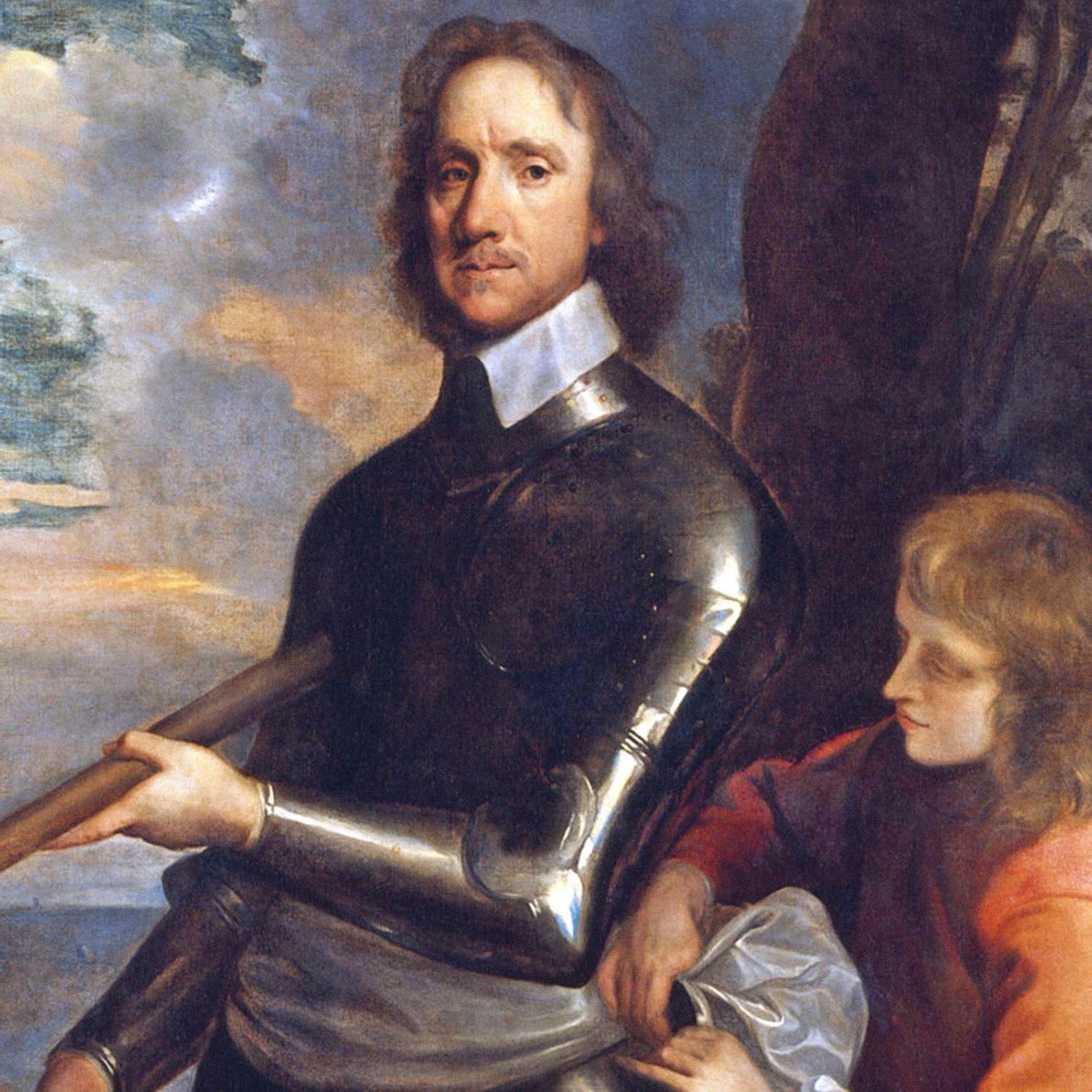Introducing
Oliver Cromwell
Oliver Cromwell
"A few honest men are better than numbers... If you choose godly, honest men to be captains of horse, honest men will follow them. I had rather have a plain russet-coated captain that knows what he fights for, and loves what he knows, than that which you call a gentleman and is nothing else."
Oliver Cromwell was born in Huntingdon on 25 April 1599. He was the second son of ten children.
In August 1620, he married Elizabeth Bourchier (1598–1665), daughter of Sir James Bourchier, a London merchant. The marriage was long and loving, and it produced nine children.
Thanks to connections between the Cromwells and the powerful Montagu family, Oliver was elected MP for Huntingdon in the Parliament of 1628, where he became an opponent of King Charles.
At some time during the late 1620s, following a period of illness and depression, Cromwell experienced a profound spiritual awakening that left him with deep and uncompromising Puritan beliefs.
Unsurprisingly, in August 1642, Cromwell took up arms for Parliament at the outbreak of the First Civil War.
He led one of the earliest military actions of the war when, with 200 lightly armed volunteers, he prevented troops loyal to the King carrying off the silver plate of the Cambridge colleges. Shortly afterwards, he secured Cambridgeshire for Parliament.
In October 1642, Cromwell's troop joined the army of the Earl of Essex at the Battle of Edgehill. The superiority of the Royalist horse impressed upon Cromwell the need for a well-trained Parliamentarian cavalry corps. Returning to East Anglia, he was careful to recruit only "godly, honest men" as troopers and to lead them with firm discipline.
A popular figure with his men, Cromwell quickly climbed through the officer ranks during the First Civil War, and he was officially appointed Lieutenant-General of the New Model Army just before the Parliamentarian victory at the battle of Naseby in 1645. During this decisive clash, Cromwell personally led two actions that effectively decided the outcome of the battle.
Despite having no military training or experience prior to the onset of war, Oliver was generally regarded as one of the greatest soldiers in England by the time the King’s armies surrendered.
During a bout of the recurring malarial fever that had afflicted him since the 1630s, Cromwell died at Whitehall on 3 September 1658. The date was the anniversary of his decisive victories at Dunbar and Worcester.
A violent storm wracked England during the night of his death, causing his enemies to claim the Devil was carrying away his soul!
After the Restoration, a vengeful Parliament ordered the exhumation and posthumous execution of Cromwell's body. It was removed from its tomb and dragged to Tyburn, where it was publicly hanged and beheaded on 30 January 1661 – the twelfth anniversary of the execution of King Charles the First.
